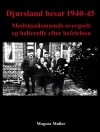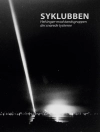In the decades following World War II, the science of decision-making moved from the periphery to the center of transatlantic thought. The Decisionist Imagination explores how “decisionism” emerged from its origins in prewar political theory to become an object of intense social scientific inquiry in the new intellectual and institutional landscapes of the postwar era. By bringing together scholars from a wide variety of disciplines, this volume illuminates how theories of decision shaped numerous techno-scientific aspects of modern governance—helping to explain, in short, how we arrived at where we are today.
Cuprins
List of Figures and Tables
Acknowledgements
Introduction: Who Decides?
Daniel Bessner and Nicolas Guilhot
Chapter 1. Reading the International Mind: International Public Opinion in Early Twentieth Century Anglo-American Thought
Stephen Wertheim
Chapter 2. Militant Democracy as Decisionist Liberalism: Reason and Power in the Work of Karl Loewenstein
Carlo Invernizzi-Accetti and Ian Zuckerman
Chapter 3. Parliamentary and Electoral Decisions as Political Acts
Kari Palonen
Chapter 4. Decision and Decisionism
Nomi Claire Lazar
Chapter 5. How Having Reasons Became Making a Decision: The Cold War Rise of Decision Theory and the Invention of Rational Choice
Philip Mirowski
Chapter 6. Computable Rationality, NUTS, and the Nuclear Leviathan
S.M. Amadae
Chapter 7. The Unlikely Revolutionaries: Decision Sciences in the Soviet Government
Eglė Rindzevičiūtė
Chapter 8. Prediction and Social Choice: Daniel Bell and Future Research
Jenny Andersson
Chapter 9. Predictive Algorithms and Criminal Sentencing
Angèle Christin
Conclusion: The Myth of the Decision
Index
Despre autor
Nicolas Guilhot is Professor of Intellectual History at the European University Institute in Florence.












